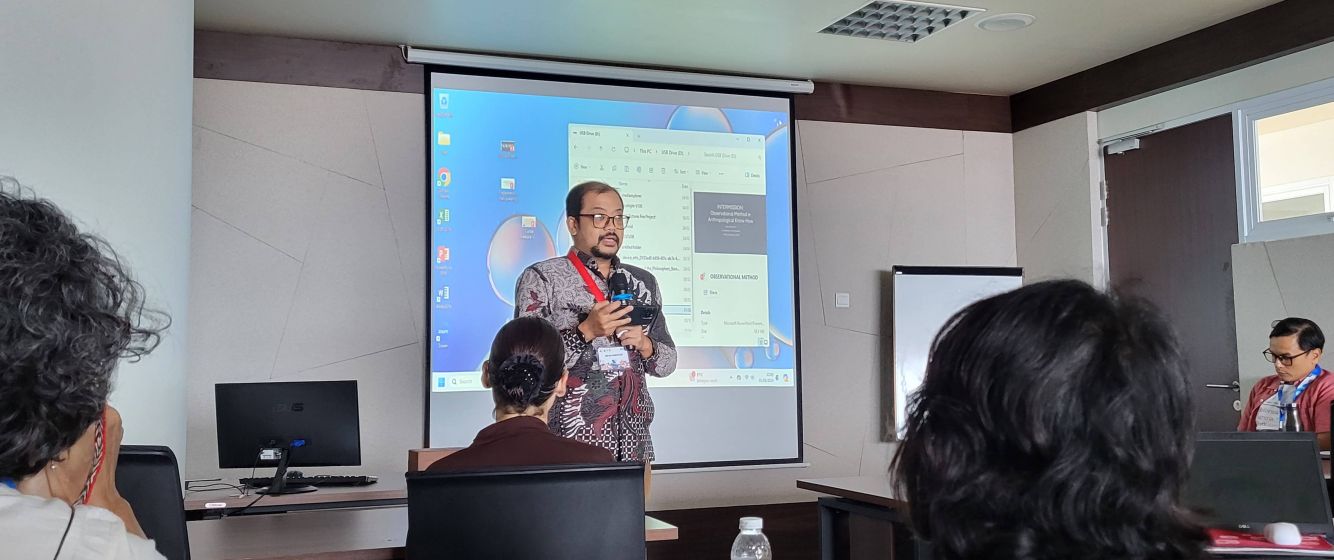Knowhow in a Shifting World, a paper panel held during ICAS 13, took on the question of knowhow, not only as an epistemic question of knowledge production but also, as overt, and or covert, process(es) of transmission and learning in different contexts, such as Odissi dance classrooms in India, Indonesian migrant workers during the pandemic, the story of Ekalavya the archer from the Mahabarata, transparency practices in oil production, and paint forgery in Indonesian arts communities.
This paper panel follows discussions initiated during a workshop held at the French Institute of Pondicherry in February 2023, on the question of knowhow, not only as an epistemic question of knowledge production but also, as overt, and or covert, process(es) of transmission and learning, in different contexts, and to address, methodologically, the prevailing binary between knowhow and knowledge.
We are particularly aware of the significance of spaces of human interaction and exchange as critical to the production and reproduction of culture, and within it, of different forms of knowledge, knowhow and knowing in a broad sense. Assuming that modes, codes, and forms of transmission are socially, spatially, culturally and politically motivated, focusing on ways of knowing the world, of acting in and on it, especially at moments of rupture like the pandemic, can be particularly revealing. In the emerging era of artificial intelligence and machine learning, we are pressed to understand the role and significance of human choice, meaning, and decision-making, through both the minuscule and the multitude of tactics and strategies deployed in the mobilization and manipulation of materials, tools and bodily skills in the production and transmission of knowledge.
Our aim is to draw from a variety of cases to build a common vocabulary, to articulate and problematize the question of knowhow, to expand its conceptual contours, examine the various material objects, tools, skills, ideas, persons/bodies and spaces that mediate knowing in all its variations. We wish to examine how knowing circulates, how it is being transmitted through human as well as human–non human relationships in diverse spheres. Examining knowhow within the theoretical framework of academic research also poses the question of the interferences between what is deemed to be knowledge and who is the learner and who is the teacher, of their status, and their influence in the academy and, in turn, on the social world. What does one restitute, and how? For whom and for which purpose?
Chair:
Aarti Kawlra, IIAS, Netherlands
Convenors:
- Barbara Čurda, French Institute of Pondicherry (IFP), India & Université Clermont Auvergne (UCA) laboratoire ACTé (UR4281), France
- Aryo Danusiri, University of Indonesia, Indonesia
Participants:
- Irfan Wahyudi, Universitas Airlangga (UNAIR), Indonesia
- Eliza O'Donnell, University of Melbourne, Australia
- Indah Surya Wardhani, Universitas Gadjah Mada, Indonesia
- Liliana Morais, Rikkyo University, Japan
Universitas Airlangga
Campus B, ASEEC Tower
Jl. Airlangga No.4-6, Airlangga, Kec. Gubeng
Surabaya
East Java 60286
Indonesia
Email Address:
[email protected]
